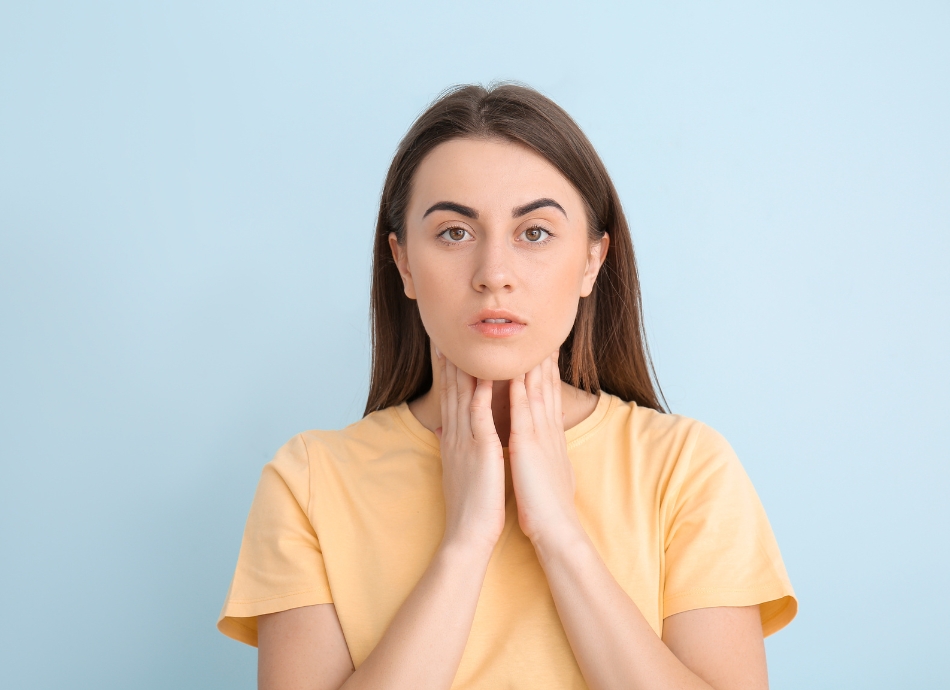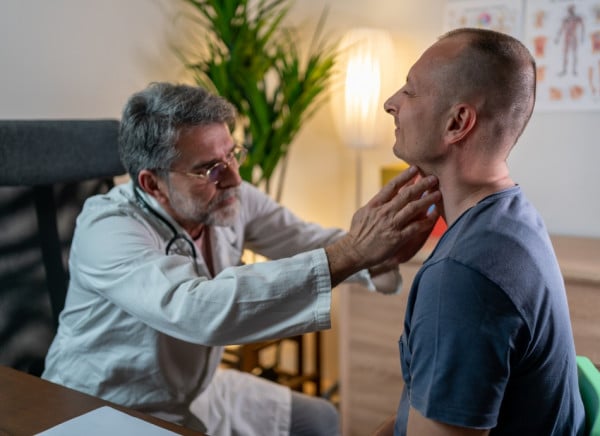If you're a frequent visitor to Healthify, why not share our site with a friend? Don't forget you can also browse Healthify without using your phone data.
Chronic lymphocytic leukaemia
Also known as CLL
Key points about chronic lymphocytic leukaemia
- Chronic lymphocytic leukaemia or CLL is a slow-growing blood cancer affecting B-lymphocytes, the white blood cells which normally produce antibodies to fight infections.
- The disease typically progresses slowly over months or years.
- Up to half of people with CLL may never require treatment. Some people may need immediate treatment after diagnosis.
- The cause of CLL is unknown, and no clear risk factors have been identified.
- The content on this page comes from HealthInfo(external link).

Chronic lymphocytic leukaemia (CLL) is a type of slow-growing leukaemia that affects B-lymphocytes. B-lymphocytes are white blood cells that produce antibodies to fight infections. With CLL, the cells become cancerous.
CLL usually develops and progresses slowly over many months or years. Up to half of people with CLL never need treatment. But in some cases, people may need to be treated soon after they are diagnosed.
The cause of CLL is unknown and there are no clear risk factors. In very rare cases, CLL may result from an inherited defect in a gene, passed down from one generation to the next.
Many people who have CLL don't have any symptoms.
Possible symptoms include:
- swollen glands, usually in your neck or under your arms
- losing weight
- night sweats
- fever with no obvious cause
- frequent or repeated infections
- tiredness and fatigue
- shortness of breath
- bleeding or bruising more easily
- stomach swelling or pain.
These symptoms can also be caused by many different conditions. Having them does not mean you have CLL. But it's important to get them checked by your healthcare provider.
Your healthcare provider will listen to your symptoms and examine you. In particular, they will check for swollen glands and check your stomach for swelling of your liver or spleen.

Image credit: Canva
You will need a blood test to look for abnormal blood cells.
You may also have:
- further blood tests
- imaging such as a chest X-ray and CT scan
- a sample taken from a swollen gland (lymph node biopsy)
- a bone marrow biopsy where a sample is taken from inside your hip bone.
Information from these tests is used to determine how advanced your CLL is and how likely it is to get worse. This is known as staging.
While CLL can't currently be cured, it's usually possible to control it.
Your treatment will depend on several factors. These include:
- the stage of your CLL
- whether you have symptoms
- your overall health and your preferences.
If your CLL isn't causing symptoms and doesn't show signs of getting worse, you may not need active treatment. Instead, you'll have regular blood tests and checks with your healthcare provider. This is known as active monitoring. It's usually done by your general practice team.
Active monitoring is a safe option as studies have shown there's no advantage in giving treatments early in CLL. The treatments themselves can cause unwanted side effects and complications. Also, new treatments for CLL are being developed, so you may have access to better options by waiting.
If your CLL is more advanced when it's first diagnosed, you will be referred to a haematologist for active treatment. A haematologist is a doctor who specialises in blood disorders.
You will also be referred to a haematologist for active treatment if active monitoring shows your CLL is getting worse. Things that show you might need treatment include a change in your blood test results or significant night sweats. Also, significant weight loss, bulky lymph nodes or an enlarged spleen that is causing symptoms.
Treatment options include:
- chemotherapy
- immunotherapy
- corticosteroid therapy
- stem cell transplant
- radiation treatment.
See your healthcare provider if you develop new symptoms. For example, night sweats, swollen glands, increase tiredness, weight loss or stomach swelling.
Keep up to date with recommended immunisations including the flu, Covid-19, pneumococcal disease and the Shingrix vaccine for shingles. If you are over the age of 60, you should consider getting an RSV vaccination. But you will have to pay for this vaccine.
You must avoid live vaccinations. These include measles, mumps and rubella (MMR) and the Zostavax vaccine for shingles.
Keep up to date with cancer screening and see your healthcare provider if you notice any new skin lesions. You are more at risk of other cancers. In particular, skin cancers that can grow faster than usual. Using sunscreen every day is strongly recommended.
See your healthcare provider if you think you have an infection. It is important to get treatment early if needed.
You may need to manage fatigue such as by pacing yourself, being as active as possible and eating well. See self-care for fatigue for more details.
Look after your mental wellbeing. Share how you are feeling with whānau and friends, your healthcare provider or a support group.
CLL Advocates New Zealand(external link) More detailed information about CLL and support including a Facebook group
Leukaemia and Blood Cancer New Zealand(external link) More detailed information and support.
References
- CLL Advocates New Zealand(external link)
- B-Cell Chronic Lymphocytic Leukaemia (B-CLL)(external link) Canterbury Community HealthPathways, NZ, 2020
- Monitoring chronic lymphocytic leukaemia(external link) Leukaemia & Blood Cancer New Zealand, 2024
- Chronic lymphocytic leukaemia(external link) Mayo Clinic, US, 2024
- Chronic lymphocytic leukaemia(external link) NHS, UK, 2023
Credits: Content shared between HealthInfo Canterbury, KidsHealth and Healthify He Puna Waiora as part of a National Health Content Hub Collaborative.
Last reviewed:


